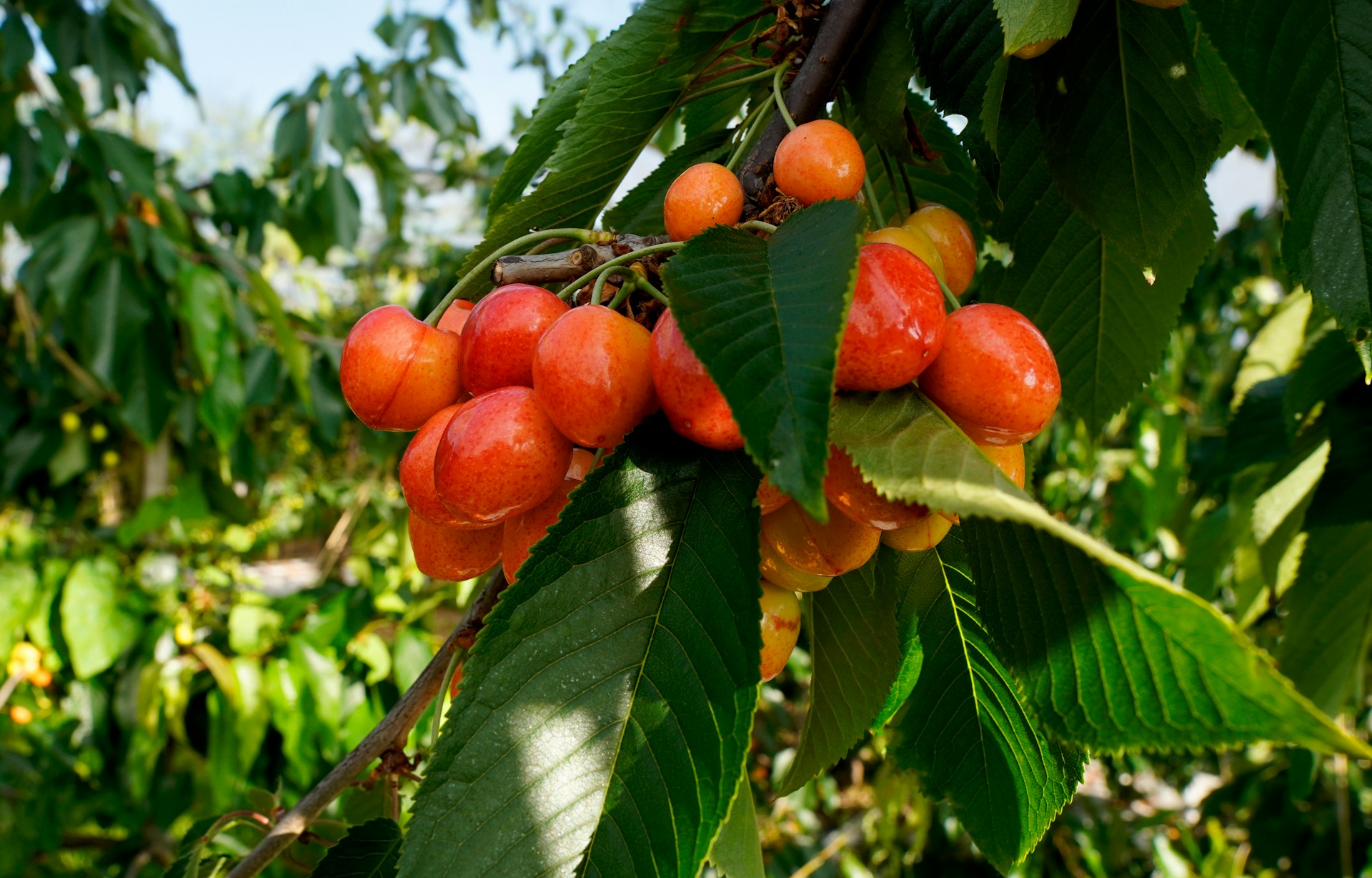In the face of growing environmental challenges, sustainable practices are becoming an increasingly integral part of our global economy.
The agricultural sector, responsible for a substantial portion of global emissions, is no exception.
One key area within this sector is the distribution of produce which has its own environmental impact that often goes overlooked.
It’s high time we shed more light on green alternatives that can replace traditional produce transportation methods.
These solutions not only significantly reduce carbon footprint but enable cost-effectiveness over time.
This article discusses some of these eco-friendly transport methods with potential to revolutionize produce distribution.
Contents
Eco-friendly Transport Methods In Produce Distribution
1. Electric-Powered Delivery Trucks
The utilization of electric-powered delivery trucks in the produce distribution industry is a significant stride towards eco-friendly transport methods.
As opposed to conventional fuel-powered trucks, these electric vehicles do not emit any detrimental greenhouse gases into the atmosphere.
Their energy source derives entirely from electricity, which can be produced from sustainable and renewable resources excluding fossil fuels.
The switch to electric-powered delivery trucks in the produce distribution industry greatly reduces carbon emissions, contributing to a healthier environment.
Another key benefit is the reduction in noise pollution. Unlike traditional trucks, electric-powered trucks operate silently thereby reducing noise pollution in urban environments.
Electric trucks also require less maintenance as compared to their fuel-powered counterparts. They constitute fewer moving parts, lessening the occurrence of mechanical challenges.
Despite the high initial purchase cost, the total cost of ownership of electric trucks over their lifetime can be comparable or even lower than traditional trucks when considering factors like fuel, maintenance, and carbon emission costs.
Moreover, several governments worldwide incentivize companies to shift to electric vehicles by offering subsidies or tax breaks.
Additionally, a growing trend is to use green electricity for charging these trucks, which is electricity generated from renewable and zero-emissions sources like solar or wind power.
Companies can set up charging stations powered by their own solar panels, thus driving down their carbon footprint even further.
Furthermore, modern electric trucks offer high torque, enhancing operational efficiency. They can achieve higher speeds more quickly than conventional trucks
As technology advances, the battery life is expected to improve substantially. This will enable electric trucks to travel longer distances, making them suitable for long-haul transport.
In response to the global push towards reducing carbon emissions, several truck manufacturers have begun rolling out electric models of their popular lines.
It’s clear that electric-powered delivery trucks offer a sustainable and eco-friendly solution to produce distribution, mitigating the environmental impact of traditional transport methods.
Embracing electric-powered delivery trucks is a powerful statement that businesses in the produce distribution sector can make about their commitment to sustainability and reducing environmental impact.
2. Bicycle Couriers for Local Distribution
As we delve deeper into the subject of eco-friendly transport methods in produce distribution, it’s important to recognize the role that bicycle couriers play for local deliveries.
Bicycle couriers are not just a low-cost delivery method; they are also a sustainable way to reduce carbon emissions in our cities.
As a form of human-powered transport, bicycle couriers provide a solution that is not only efficient, but also enviornmentally friendly
In dense, urban environments, bicycles can often be faster than traditional motor vehicles.
Running errands, delivering packages, transporting produce; these can all be done efficiently by bicycle couriers without the pollution associated with gasoline-powered vehicles.
Additionally, the health and wellness benefits for the couriers themselves cannot be overlooked.
Bicycling is an excellent form of cardiovascular exercise, improving the courier’s overall health and well-being, positively impacting their performance at work.
Moreover, employing bicycle couriers also opens up job opportunities for local individuals.
This has further benefits for the local economy, as the money earned by these couriers is more likely to be reinvested locally.
Businesses stand to win too, as customers increasingly demand eco-friendly practices, including sustainable transportation methods.
Become a vanguard for sustainability in the business sector – using bicycle couriers for local distribution builds a favorable image and positively impacts your brand’s reputation.
It isn’t just hype; global businesses like Amazon and Dominos have recognized the potential, using bicycle couriers in certain geographies.
However, there are some valid concerns related to safety and efficacy.
Appropriate infrastructure, such as bike lanes, are necessary to ensure bicyclists’ safety, and weather conditions can pose challenges to efficiency.
It is also important to note that bicycle couriers are more suited for local or short distance deliveries, given the physical effort needed to pedal long distances.
Undeniably, bicycle couriers are an important piece of the puzzle when it comes to eco-friendly transport methods in local produce distribution.
3. Solar-Powered Refrigerated Transport
With the growing concern for the environment, the produce distribution industry is gradually shifting towards greener alternative methods of transportation.
One such transport method is the solar-powered refrigerated transport, a technology that harnesses the limitless energy from the sun to power refrigerated trucks.
Such trucks are equipped with specially engineered solar panels that are designed to convert sunlight into electricity to run non-mechanical refrigeration systems.
The solar-powered systems stand as a testament to technological innovation and resource conservation, significantly reducing the industry’s carbon footprint.
Moreover, solar-powered refrigerated transports not only promote sustainability but also promise impressive financial benefits.
Truck owners can utilize solar energy, which is a free and abundant resource, thus lowering their operational costs significantly.
In addition, these trucks can be more reliable as they are less dependent on fuel, reducing the likelihood of operational disruption due to fuel shortage or price volatility.
Moreover, solar-powered refrigeration extends the battery life of refrigerated trucks, hence reducing maintenance costs associated with frequent battery replacements.
Such transportation method also provides a cleaner and quieter operation, enhancing the driver experience and the working environment.
However, the implementation of solar-powered refrigerated transport is not without its challenges.
For instance, the initial costs for the installation of the solar panels and related infrastructure could be hefty, which might pose a financial barrier for small and medium-sized businesses.
Moreover, the efficiency of solar power largely depends on sunlight exposure, thus it might not be as effective in areas with less sunny weather.
Nonetheless, despite these challenges, it is undeniable that solar-powered refrigerated transport holds immense potential in revolutionizing the produce distribution industry.
With ongoing technological advancements and increasing awareness about environmental sustainability, it is hoped that more and more companies would adopt this eco-friendly transport method in the near future.
This shift will not only benefit the companies economically, but it will also contribute significantly towards a sustainable and green future in produce distribution.
4. Rail Freight Transit
The fourth significant trend in eco-friendly transport methods in the produce distribution industry is the increasing use of rail freight transit.
Historically, the rail transport system has been essential for moving vast quantities of goods across long distances.
Rail transit has always been more energy-efficient than road transportation, a factor that appeals to eco-conscious businesses and consumers.
When it comes to produce distribution, rail cargo provides an efficient method to transport fruits, vegetables, and other farm produce across states or even countries.
It’s widely regarded as being more sustainable because rail freight has a lower carbon footprint compared to trucking.
The use of rail transportation in produce distribution significantly reduces the amount of greenhouse gas emissions.
Moreover, rail networks are often easier to electrify than road networks, making them a viable solution in areas where electricity is derived from renewable sources.
Advanced refrigeration systems can be fitted within rail cars to ensure the freshness of the produce being transported.
These systems can operate on renewable energy resources, further cementing the place of rail transport as an eco-friendly method for produce distribution.
Rail freight transit’s only common downside regarded by some as less flexible than road transportation due to fixed rail routes.
However, strategic planning can overcome this challenge. For instance, intermodal transportation combines the benefits of rail and road delivery systems, thus providing flexibility and reducing carbon emissions.
The transition to the extensive use of rail freight transit in produce distribution is a pivotal move towards minimizing environmental pollution.
Although implementing this method requires substantial investment in railway infrastructure and equipment, the long-term benefits with respect to sustainability and conservation are considerable.
While the upfront cost is high, companies are likely to recoup their investments over time through decreased operational costs and enhanced brand reputation from environmentally conscious consumers.
Furthermore, local and national governments globally are working towards incentivizing the use of rail transportation to promote sustainability.
This will likely lead to a surge in the adoption of rail freight transit in the produce distribution industry in the coming years, making it a critical part of the broader shift towards eco-friendly transport methods.
5. Biofuel-powered transportation
The growing interest in eco-friendly mode of transportation has paved the way for the exploration and development of biofuel-powered mechanisms in product distribution.
Biofuel-powered vehicles use a type of fuel derived from biomass, such as plants, or from the waste of animals or humans.
Contrary to fossil fuels, biofuels are a renewable source of energy, which makes them more sustainable and environmentally-friendly.
Opting for biofuel-powered transportation in produce delivery can significantly reduce greenhouse gas emissions.
Despite the misconceptions, the utilization of biofuel-powered vehicles can be cost-effective in the long run.
The process of producing biofuels also helps in managing waste, as biofuels can be produced from organic waste products, contributing to a cleaner and healthier environment.
Biofuel-powered vehicles are capable of delivering the same, if not higher, level of efficiency as conventional vehicles.
The major benefit is that their use doesn’t result in the depletion of the world’s precious nonrenewable resources, such as petroleum.
The various ways of sourcing biofuels, such as from crops, waste oils, and animal fats, actually promotes biodiversity and sustainable farming.
The industry of biofuel transportation is not without its challenges.
One of the most notable includes establishing infrastructure and fuel stations that can accommodate these types of vehicles.
Moreover, some critics argue that the cultivation of crops for biofuel purposes might compete with food production, thus putting food security at risk.
However, with innovative steps being taken to generate biofuels from waste materials, this issue can be readily mitigated.
In the realm of produce distribution, biofuel-powered transportation presents a promising future in our quest for more eco-friendly methods.
While challenges remain, the potential environmental benefits of biofuel-powered transportation undoubtedly warrant further research and development.
The Bottom Line
The transition to greener methods of delivery and transportation is necessary for the creation of a sustainable future.
Ecological alternatives such as electric-powered delivery trucks, bicycle couriers for local distribution, solar-powered refrigerated transport, rail freight transit, and biofuel-powered vehicles are not only beneficial for the environment but can also lead to significant economic savings in the long term.
Further embracing these innovative solutions is crucial in reducing greenhouse gas emissions and forging a cleaner, healthier and environmentally conscious society.
Ultimately, investments in green transportation have the potential to yield substantial returns, not just for businesses but for the entire planet.




